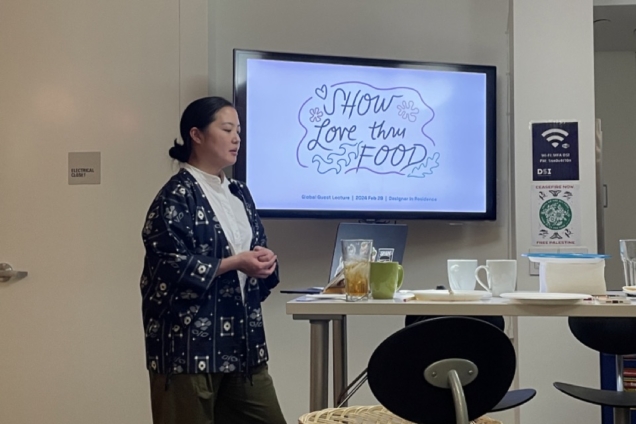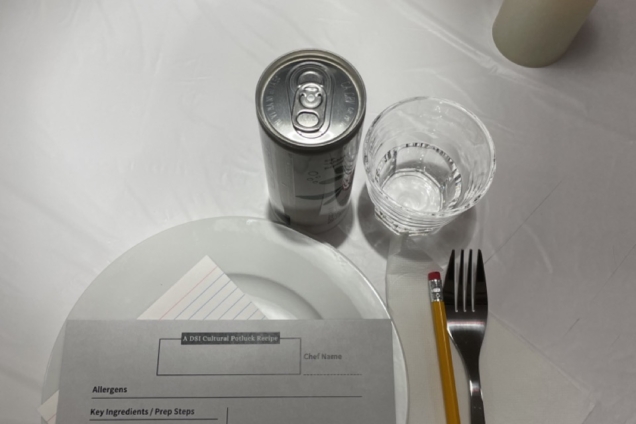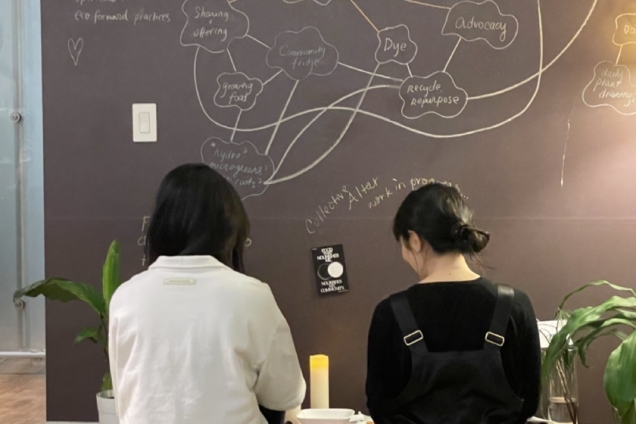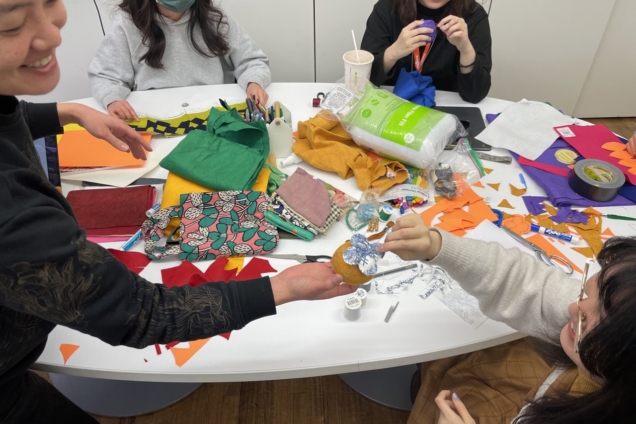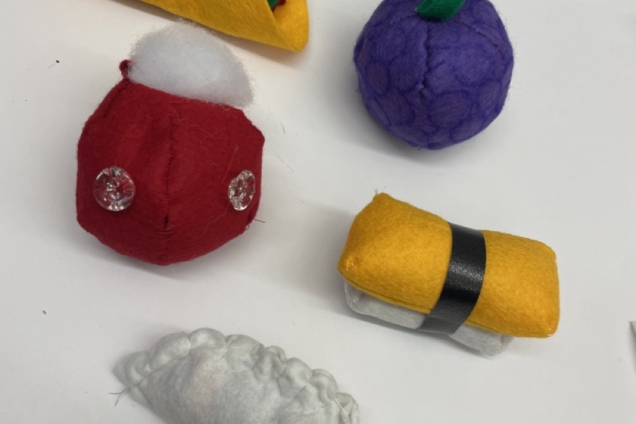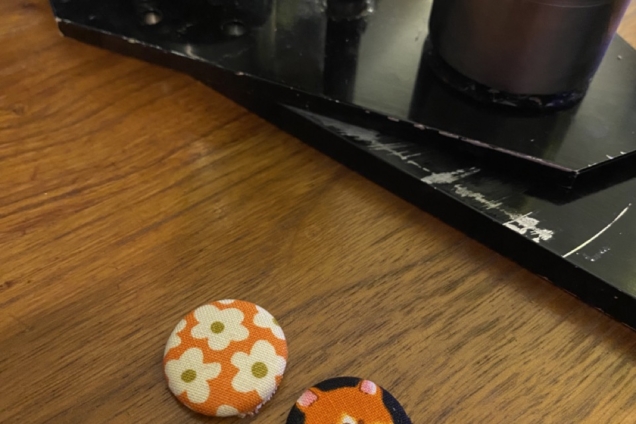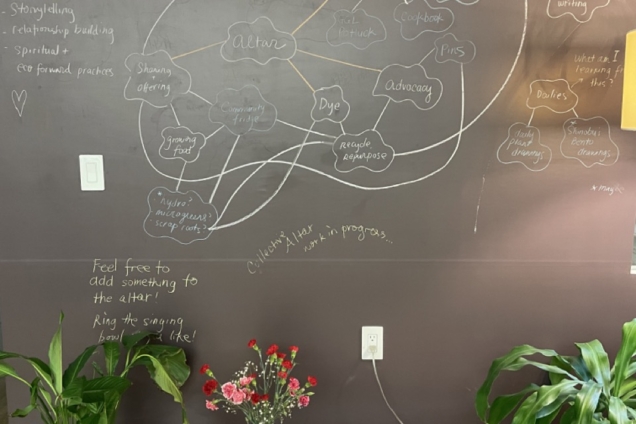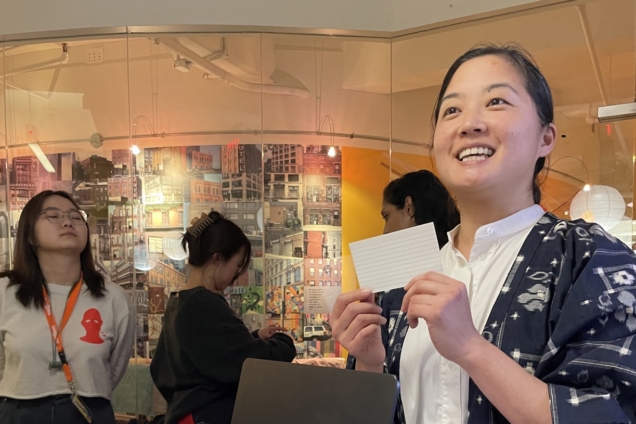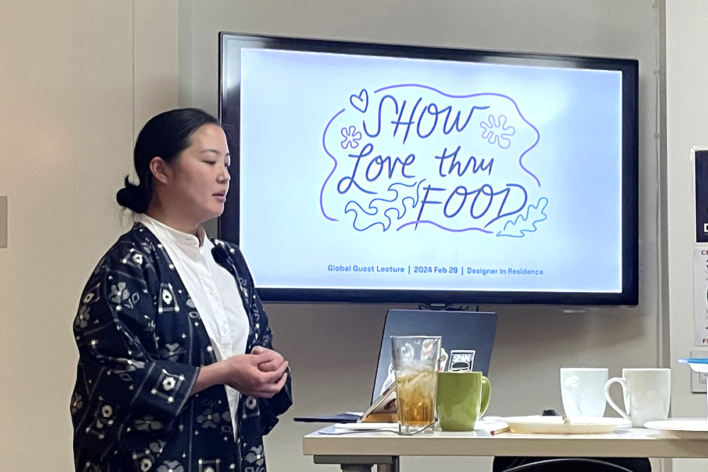
Meet DSI Fall 2024
DSI Designers in Residence:
Mari Nakano
Designer + Systems Strategist + Coach +Educator
Mari Nakano (she/they) is a second-generation Nisei Japanese-American focused on exploring where and how to meaningfully contribute to movements centered around agriculture, food, and eco-stewardship as they relate to social and environmental justice.
During their Spring 2024 DSI residency, Show Love Through Food will serve as a theme for Mari to further understand food’s power and explore how this medium when combined with the themes of natural cycles, heritage, nourishment, belonging, and reconnection, can inform our social design practices.
Can you talk a bit about your professional experience? How did you get to where you are?
Right after college, I started working in social services as the Youth Services Coordinator at Little Tokyo Service Center (LTSC), a non-profit community development and social services organization supporting the Little Tokyo and wider Los Angeles community. My time at LTSC along with my experiences participating in the larger AAPI community inspired me to find a way to bring together the power of community with my interest in visual and social design. This is when I decided to go back to school for graphic design and eventually media design so that I could build the skills to really pursue what at the time was unclear, but headed in the general direction of local level social impact work.
My social design career developed primarily through a near-decade serving as the Design Lead for UNICEF’s Office of Innovation and then as Design Director for the Service Design Studio at the NYC Mayor’s Office for Economic Opportunity (NYCO). Both of these roles required me to build small, efficient, Swiss Army knife design teams in bureaucratic environments for the purposes of advancing innovative ideas and fostering community-centered approaches in the ways we identify, develop, and implement change. Through trial and failure (and lots of wins, too!) and with the support of collaborative teams, I learned strategies and approaches for integrating participatory design approaches in the design of programs and services; as well as organizational culture.
During this period, I also became a mentor, coach, and educator. Currently, I serve as an adjunct faculty and thesis advisor right here at MFA DSI, and coach students at the Stanford d.School and Graduate School of Business through their Design for Extreme Affordability and Social E Lab program.
At the end of 2022, I moved away from a singular full-time job and have been enjoying switching between several professional hats that all reflect some combination of my love for design and art, my interest in de-complicating information and processes, and my social, political, and spiritual values. I identify more or less as a multi-disciplinary designer, systems strategist, coach, and educator and it has been because of my experiences that I’ve been able to diversify how I contribute professionally to the world. Now, I am exploring where and how I might be able to meaningfully contribute to movements centered around agriculture, food, and eco-stewardship as they relate to social and environmental justice. I’ve been spending time building relationships with individuals and organizations focused on food access and sovereignty, community health, and environmental stewardship and sustainability, building new knowledge and learning where I might be able to contribute my skills and passion.
What do you have planned for your design residency this Spring? What name, title, or concepts that you are exploring?
Show Love Through Food, the working title for my residency, is an exploration of how food serves as a vessel for opening communication portals and building connections between the physical, natural, and spiritual worlds. This residency is also a time for me to reflect on how the social design practice might better consider these intertwined worlds in the ways we approach and choose to respond to social and environmental challenges. We are in a fortuitous moment where there is already great perspective being offered through decolonial and indigenous approaches. I’d like to draw out connections to these approaches and perspectives to my own ancestry, heritage, and history as a second-generation Nikkei Nisei Japanese-American. I have a story to share, and I’m figuring out how to tell it better through the conduit of food and collectivity.
I am engaging our DSI community in ongoing activations around the studio that range from food and justice-centered pin-making, making and eating food together, testing out a DSI community fridge and pantry, and building a loving and intention-filled collective altar. The hope is that this culminates into an open and communal event shaped by these and any other activations that emerge along the way.
Who or what has inspired you?
While there are many honored loved ones in the spiritual realm who motivate this work, it is my late father, Tatsuo Nakano, who I’d like to uplift as inspiring so much of what I do. My dad was a chef, an artist, and a passionate and creative soul who guided me in my youth in the physical world and has continued to guide me through my formative and adult years via the spiritual world. It was through him that I developed a deep appreciation around food and where it comes from, and it was through my mother that I grew to be a giver.
I am also, sadly, inspired by a sense of loss more broadly. We are in a time where climate change, food insecurity, Land Back and land rights globally, cultural erasure, and animal extinction are top of mind for me and many communities I am a part of. The types of questions that have been loud and clear and on my mind are things like what legacy or impression do I want to leave here with? How will I serve as a steward of this planet with the time I have left? What will I leave behind for my children and future bloodline? It is within these and other similar questions that I find inspiration for this residency.
Why is this residency important for you (or others) right now?
With lots of love and support, I was able to depart from a full-time day job about a year ago and shift my energy towards awakening dormant interests in food, agriculture, and eco-stewardship as they relate to social and environmental justice. I embrace this moment as a gift and a chance to be something for this world that is more aligned with a greater feeling of purpose that feels more like who I really am now and who I am trying to become. Our identities are ever-shifting! This residency contributes to this purpose, and, if anything, has come at a serendipitous time in my journey. Without this residency, I’m pretty sure I’d still be operating too much in the present and not dreaming enough, which is counter to my Piscean side!
I also see this residency as a platform for exploring different ways to establish connections and build bonds with one another, and the spiritual, ancestral, and natural worlds in hopes that we can create more capaciousness to sit with our histories, reflect on our multi-layered identities, storyshare why we are each here and where we want to go collectively, and open new avenues for building solidarity. We cannot ignore that the ongoing humanitarian crisis in Palestine is testing our humanity, and I feel called to create spaces for listening, extending care, growth and expansion, and expressing ourselves through love. Show Love Through Food is an attempt at this and I hope my work can inspire or catalyze others to think about how they choose to show love, too.
What gifts do you hope to share?
I think part of this residency is to answer this very question, so in some ways I don’t think I can answer this until the residency ends. This time for me is partly about self-discovery. If anything, what I hope to share are new perspectives on what it means to collaborate, gather, and honor ourselves and our communities.
More about Mari’s residency or marinakano.com
More related links
- “The goal is to build civic curiosity, knowledge, and leadership." | Pilar Finuccio (MFA DSI '18) at the Center for Urban Pedagogy Blog
- Meet 2025 SVA Alumni Scholarship Winner Héctor Ruiz (MFA DSI '25) Blog
- Amplifying Women in Innovation Fields | WIN Awards 2025 Blog
- "The Cross Bronx Expressway, through the lens of the communities who live alongside it" | Alejandra Saker (MFA DSI '24) Blog


